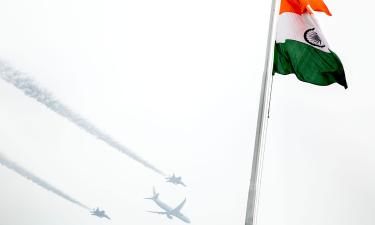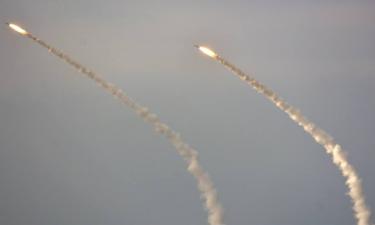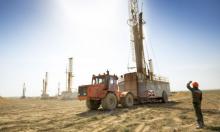Journalist Atul Aneja: Russia could invest in India to boost global development
Editor-in-Chief of India Narrative Atul Aneja, during the interview with Pravda.Ru special correspondent Daria Aslamova in India, spoke about Indian participation in BRICS and how investment cooperation between India and Russia is growing.
In two years we are going to celebrate two years of BRICS. This is a serious age for an organisation. What has India achieved as a result of its BRICS membership?
India took part in making the structure of BRICS. We set up the New Development Bank or the BRICS bank that is based in Shanghai. The chairperson of the BRICS bank is usually an Indian representative. Some of the loans that came from BRICS bank — they came to India. Secondly, India wanted to support a multipolar world. In terms of the strategy, BRICS became an ideal partner. We do not support the unipolar world, and BRICS gives us an opportunity to be ourselves. BRICS gave us this option not to be part of the pro-Western world. BRICS helped us both politically and economically. BRICS will continue to play an important role for India afterwards as we are entering the post-Western world. The biggest benefit is that BRICS has expanded. There are already 15 members there. This is definitely an achievement because the center of gravity in the world is now moving towards BRICS. Such big players as Saudi Arabia, the Gulf States are coming in. There are officially nine members now, but they are all strong members. The BRICS members have enormous energy resources, suffice it to mention Russia and the Gulf States. This is a new time that is coming in, and India is definitely part of that. There are many benefits to it already, but in the future there will be even more of them.
When BRICS started, it was our common dream to leave the dollar behind and develop one joint system of payments. When is it going to become reality?
We are still in the beginning. We have the framework ready, but there is a lot to be done in terms of internal coordination. It has to start on the economic side. It is still a political platform, rather than an economic one. It is not a strategic platform either. If we look at security and intelligence cooperation, BRICS is not there. There is a lot of work to be done to make BRICS realise its work potential. Yet, the de-dollarisation process has started. Look at the Russia-India trade now — it's mostly rupees or dirhams, but not dollars. Yet, it has not happened to the extent when non-dollar countries could exercise their freedom in full. I hope the BRICS countries will move to the next level of cooperation soon. We need to integrate more, even in terms of culture, in the field of tourism. Something to be done in the field of digital currency as well. We should be able to buy and sell online in real time, payments should not be an issue. Financial integration should come first. Trade and investment will follow. We probably need to challenge the West, but this is not going to be an easy task because sanctions will come. Big countries have a role to play. Russia is already under sanctions, but when I went to Moscow recently, I could see that the Russian economy was dong better than before. You have now more Russian products, but so what? Moscow looks great even after sanctions. Sanctions gave so many opportunities. Russia has a lot of everything, this is a self-sufficient country. Food is not an issue. That is why big countries like Russia and China and India have to take the lead in the integration process, to face the West and look it in the eye. I see it as RIC within BRICS — Russia, India, China — that will be a complete game-changer. Russia and China have their own track, but Russia-Indian track is very important as well. We are doing well, our trade has gone up after the Ukraine war to about 60 billion dollars literally from nowhere.
The growth in trade is impressive indeed, but India's export to Russia is 3.3 billion dollar, which is ridiculous. What can India offer being such a huge economy?
Investment is a very important thing. It should come in the field of technology. Russia has excellent technology, such as AI. India is good on the software side. There is a need for a joint collaboration, one could invest in India. Once it starts here, we will have a huge potential for export. I think that the India-Russia relationship has to move on the high0end technology now, such as space and nuclear technology, AI, computer technologies and cyberspace — these are new areas that we can collaborate on to take our countries to a whole new level. Russian high-end technology companies can come to India. We already have military trade, oil and gas trade, diamonds, but it is cutting-edge economy that we all need. For example, unlike China, India does not have electric vehicles, there's also aircraft constriction and so on.
However, Indian businesses are too cautious to start working with Russia.
Of course, they do not want to jeopardise their relations with the United States. They fear sanctions. They are scared, but I think it is state-owned enterprises that need to take the lead at this point. There are good state-owned enterprises in India, They are well-managed and profitable, like railways, for example. This process is already underway. Aviation is another industry. Hindustan Aeronautics Limited is a state-owned company that produces both military and civilian aircraft. I believe that is is the public sector that has to come first, and the private sector will follow afterwards.
There is a lot of talk in India about the need to start doing projects with Russia. However, it only comes down to Russian oil and Indian pharmaceuticals.
India is investing in Russia. India is investing in the Russian coal industry. We are investing in Siberian companies, in the timber industry. The Russian timber is a new discovery for India. We have also recently discovered the new route from Vladivostok to Chennai, the new economic sea corridor. The Russian far East is a new thing that we have not had business with before. I think it started in 2017 with East Asia Forum in Vladivostok.
How long does it take a ship to travel from Vladivostok to Mumbai?
No, it goes to Chennai, along the east coast. India has been building more ports on the east coast, although we usually have them on the west coast. The ports on the east coast of India are connected with Vladivostok.
Is it like a new economic zone?
Yes, of course. The Russian Far East and Southern India is a new thing. New opportunities are coming up, and we need to breathe fresh air into it. Indian investments in the Russian Far East have already started — coal and steel. The State Bank of India has also arrived there for the financial side. I think we need to push India's business with Russia's Far East further on. At the same time, we need to look at the development in the United States, If Trump comes to power again, I do not think Indian companies will feel that much oppression. The perception of Russia is changing now, especially after the oil deal. People started taking notice of Russia in order to come back. When the war in Ukraine began, many believed that Russia may lose it. That was the Western propaganda was trumpeting about. This is not happening, and Russia is not losing this war with all the sanctions happening to the country. This means that Russia is a big and strong country. The image of Russia has improved considerably. Russia is also a BRICS member. Indian and Russian leaders are together.
All the projects that you are talking about, they all need state support. I think our leaders have started it. The oil deal would not have been possible otherwise because of the Ukraine war. Today, India is a very strong and independent country. We will be able to overcome problems together to step into new areas of economic cooperation. There are so many things to discover. For example, we can attract young people to the computer games industry. I already know that young people from Russia come to India and go to the Cyber City in Mumbai. Online and digital connections have started.
They now start speaking about the new Indian era, about India becoming the new superpower. Do you think globalists will make another mistake like that with China? China has grown so much lately.
If you recall the World Economic Forum in 2020 when George Soros spoke against Modi and against India.
But they are waging an information war against India. Soros said that India was an enemy of democracy.
India is a strong country right now. If the West wants to cooperate with us, that's fine, but if not — we have other partners as well.
Canada has made a big scandal about the freedom of Sikhs in India. British newspapers took it up and started writing about the genocide of national minorities in India.
To be honest, we don't care. It's not nice if your label it that way. India is absolutely confident of its present and future. We have been developing so dynamically. The Indian people stand together, we have strong leadership as well. If Canada does not want to cooperate with us, then we can only say ертфл you and bye bye. We have friendship with Russia, the Middle East and so on. India is a nuclear power too, our security is done, our forces are strong. We are confident in ourselves. To tell you the truth, when these countries decline, they will come to us for cooperation. It's a new century now, a new world.
We need to become much more independent in mentality.
We are independent in mentality, because as it appears today India is siding with the West. It's not a question of taking sides. India used to be with the Soviet Union in the past, not with the West.
After the USSR collapsed, India turned to the West.
We did, but even in the worst time we were not a junior partner for the West. India is a civilisation ally, an independent nation. We used to be in a period of vulnerability, I agree with you, but we managed to overcome this vulnerability over time. Today, we do not have to look for the West for what we want. We can now make our own future ourselves, and we are optimistic. No greatness comes without confrontation. Every nation has to go through a lot of hardship before it can become a great power. India will rise, but we are going to rise as one of the poles in the multipolar world. Russia will be one of those poles too, China is there too. Resource-rich countries like Saudi Arabia have a future of their own, Iran is also a very strong player. Threw will be multiple poles of power, but India will definitely be there in the front row. It's a big goal for Russia and India to cooperate to become superpowers.
India is also coming though the process of changing the name of the country to Bharat. India starts using it for international forums like the G20. Bharat is the name in the Indian Constitution. Bharat is India and it has been like that since 1950. This is not a new name, it is Sanskrit name. We are digging into our roots and civilisation. It just describes India more, and we are willing to highlight it a bit more as a stronger civilisational identity. To be honest, it does not matter.
But they already start talking about Bharat ideology and Bharat nationalism.
It's not something new either. India used to be strongly nationalistic during the times of Indira Ghandi and the war in Bangladesh. India is driven by its Constitution. Whichever party comes, you can not overwrite the Constitution. You can try and look for other ways, but everything has to be based on the Indian Constitution. We are not changing our basic foundation. There will be elections next year, young people want to have a strong government, but it's absolute nonsense if you compare it with Nazis who want to come to power.
Subscribe to Pravda.Ru Telegram channel, Facebook, RSS!





